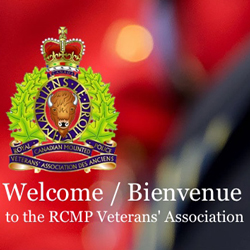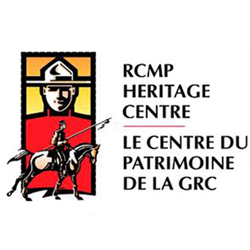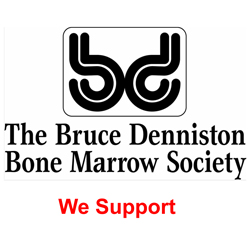S/Sgt. Steve Bunyk – UPDATED
On August 13, 2012, Steve Bunyk passed away in Burnaby British Columbia.
This tribute is in his honour for his dedicated services to the Force, his community and his family.
Steve Bunyk is proud of his time in the Force. He contributed to establishing a good working relationship between the Vancouver Police Department and the Vancouver Drug Section.
This humble individual had a keen ability as an undercover drug operator as well as a leader in the Vancouver Drug Section. Despite his tireless efforts at work, he remained totally devoted to his family and friends.
BACKGROUND
Steve Bunyk was born at Transcona Manitoba and grew up at St. Boniface Manitoba. After finishing high school, he secured a job with the Imperial Tobacco company in Winnipeg. As one of the company’s drivers, he transported various tobacco products to stores in and around Winnipeg.
One day, a fellow employee announced that he was heading down to the RCMP office in Winnipeg to sign up. Without much thought, Steve responded by saying “I’m going to join the RCMP as well. “ Much to Steve’s surprise, he got accepted into the Force but his work colleague didn’t. Another friend from his hometown also joined the Force and he maintained contacted through the years. His friend is Bud “Bullets” Johnson (Reg. #15120 – O.738).
When he told his mother that he had been accepted into the RCMP – her immediate response was ‘in three days you’ll be back.’ According to Steve, “my mother didn’t think I could live on my own and would get homesick. She was upset with me joining because I had responsibilities at home and a brother 5 years younger.”
JOINS THE FORCE
On September 16, 1949, Steve was engaged into the Force and assigned the regiment number of 15901.
His basic training consisted of 4 months at Depot Division and an additional 4 months at “N” Division in Ottawa. According to Steve, “I have many good memories of Depot Division. With Physical Training (PT), the instructors had us out at the North Gate at exactly 6:20 AM to run alongside the streetcar. The PT instructor would run with us and we would keep up to the streetcar from the North Gate down to the Gray Nuns Hospital and then we’d run back to Depot..”
Steve outlined that “one particular PT instructor was a bit of a bully. The Instructor would get a recruit in the boxing ring and punch the heck out of them. I took exception to this bullying and decided to step into the ring with the instructor. Consequently, I got a beating like many other recruits.”
While at Depot, Steve Bunyk and his troop stayed in the old “C” Block. Every Friday, we had to clean our barracks for the Sergeant Major’s Saturday morning inspection. This meant polishing the floors and dusting everything. The Sergeant Major at the time was Charlie Thornton (Reg. # 10558). According to Steve, “the Division mess was on the main floor of the old “C” Block. Many recruits complained about the food but these complaints fell on deaf ears.”
After Depot Division, Steve and his troop mates headed off to “N” Division in Rockcliffe Ontario. Upon arriving, “the Staff Sergeant Major took a disliking to us an called us the ‘shit-squad.’ He made run in full uniform for a whole hour. At the end, our high browns were white from the sweating of our feet. Needless to say, this Sergeant Major was the least liked instructor at “N” Division.
Fortunately for my troop, the “N” Division horses weren’t available. Consequently, we didn’t have to undertake the Musical Ride training.
To avoid having us sitting around doing nothing, it was decided that they would give us our postings and brings us back to N Division when the horses were available. Fortunate for us, they never did bring us back.”
Steve Bunyk was brought into the Staffing Office and was asked where he wanted to be transferred to in Canada. According to Steve, “I said anywhere west and I was advised I was being transferred to Vancouver.” Five other members of my troop were also sent to British Columbia.
TRANSFERRED TO VANCOUVER
In those days, members were paid so little and as such very few members had a car. So when Steve was transferred to Vancouver, he was requisitioned a train pass from Ottawa to Vancouver. For the entire journey, he had to wear his red serge. On the long train journey, Steve met a British tourist who was travelling to Calgary. When the tourist disembarked at Calgary, he turned and thanked Steve for protecting him against the culprits of the wild west.
Once Steve arrived at the Vancouver Sub-division, he was assigned to a bed area on the 2nd floor of the Fairmount Barracks (north wing). According to Steve – “with the Force at the time, they didn’t provide any curtains. On many occasions, the nurses at the Oakridge hospital would complain that when they looked south towards the Fairmount barracks – they would frequently see nude males walking past the windows. Despite numerous complaints, the Force failed to provide any curtains.”
The Vancouver Sub-division Officer advised Steve that he was being assigned to the Vancouver Drug Section and he was to report to S/Sgt. Joe Atherton – NCO ic of this Section. At the time, there were only seven members on the Drug Section – two managers and the rest were investigators.
According to Steve, “Joe told me to go downtown Vancouver and familiarize myself with the lay-of-the-land.”
In his first few weeks in Vancouver, it was decided that Steve would make some under cover heroin purchases off some local drug traffickers at the Broadway Hotel.
Without any backup or cover, “I was directed to the Broadway Hotel (near Columbia and Hasting Street). As I was walking into the hotel, I noticed to Vancouver City Police members standing outside the door. I sensed they were paying special attention to me as a new comer. It was my belief that they were going to check me out. So, I walked into the men’s washroom waited for them to come in after me. Five or ten minutes passed and they didn’t appear. Consequently, I walked out of the washroom and I was jumped by one of the Vancouver policeman with his two hands around my neck. They hauled me out to their police car on Columbia Street. It was in the back seat of their car that I identified myself and asked them to call the Vancouver Drug Section.
Based on my initial experience with the Vancouver Police Department, the Vancouver Drug Section adopted a practice of having a cover member or team when a Drug Section member was under cover and making a buy.”
Over a period of several weeks, Steve perfected the lingo and approach to make successful drug purchases. According to Steve, a popular line was “you got it – I’m looking” and the price was $15 for a heroin gram capsule. His early undercover work resulted in 19 individuals being convicted of drug trafficking and each received 7 years in the B.C. Penitentiary.
With this recently gained experience and expertise, Steve was involved in another undercover operation which targeted individuals selling heroin capsules to high school girls. As an undercover operator, Steve was able to identify and provide sufficient information which led to the individuals being convicted and they each received 7 year sentences. In the Vancouver Province newspaper of November 14, 1952, they quoted Steve Bunyk as saying “heroin was the only narcotic drug obtainable in the Vancouver underworld in 1951 and the early part of 1952.”
At the time of these trafficking convictions on November 14, 1952, Judge Mason stated “no crime can be more heinous than that of the individual who peddles drugs… a man who trafficked in drugs was worse that a murderer in that he not only murdered the body but the soul also.”
Prior to World War II, the Vancouver drug problems were primarily heroin which was coming in from Asia. Since that time, drug addicts continued to gravitate to Vancouver because of the mild weather. It was an ideal location with many modes of transportation available – highways, seaway, air and train.
On February 22, 1953, the Vancouver Sun published an interview with then George Cunningham – Deputy Commissioner of the U.S. Treasury Department’s Bureau of Narcotics. Mr. Cunningham stated “if your city (Vancouver) starts free drug clinics you’ll get every addict who can make it there and they’ll get there if they must run, fly, ride or even crawl on their hands and knees.” In the same article, Benjamin Mitchell, Assistant Commissioner and chief enforcement officer of the bureau stated “Vancouver – that’s the place where there is a strong movement afoot to start drug clinics. Go ahead and start the free clinics and you’ll relieve us of the responsibility of a lot of our own addicts.” Mr. Cunningham provided his concluding comments about heroin drug traffickers by stating “no mercy should be shown to a drug ‘pusher’ whenever he turns out to be an addict himself. There’s no place in this maudlin sentimentality. The addict is one of the most vicious elements in the entire drug traffic because he is an addict and will stop at nothing to sell drugs in order to get enough money to support his own habit.”
In 1953, the population of Vancouver was 70,000 and there was an estimated 2,400 known drug addicts living in the Vancouver area. To combat the Vancouver drug trade, Steve Bunyk and three other Drug Squad members identified and hunted down heroin drug suppliers and traffickers. They were supported by dedicated detectives from the Vancouver Police Department – Frank Hill, Angus MacDonald, John Dyer and James Mitchell. According to the Toronto Flash newspaper edition of November 21, 1953, “everyday there were arrests and every week there were convictions – 95% of addicts and pushers arrested were convicted.”
With combined efforts of the Vancouver Police Department and the Vancouver Drug Section, the organized crime in Vancouver was being significantly impacted. From the summer of 1954 to 1956, the Vancouver organized crime group ordered the bombing of several vehicles in the Lower Mainland of British Columbia. Some people were killed. One vehicle bombed was that of recently retired Vancouver Police Department member – August MacDonald who was considered an “ace of drug squad.”
Steve Bunyk’s residence received a telephone threat and two written threats. Consequently, his house was placed under a 24 hour surveillance. Based on these threats, Steve arranged a private meeting with a key organized crime figure and it was explained in no certain terms what consequences would occur if similar calls or action against him or his family were to occur. After this meeting, Steve received no additional threats on his life or family. In an interview with Steve Bunyk, he was evasive on the details of the conversation with the crime figure. However, Steve did say that he “enjoyed his time on the Vancouver Drug Section with the use of writs and kicking in doors.”
On February 18, 1955, the Vancouver Sun ran an article by their reporter Jack Wasserman regarding the drug scene in Vancouver. The reporter stated in the Vancouver Sun – “I sat in the austere offices of the Narcotics bureau here today and heard from the lips of the New York’s top narcotics expert that Vancouver has become one of the most infamous drug centers on the North American continent. So bad is Vancouver’s reputation that New York narcotics officers bandy the names of Vancouver underworld figures with the same familiarity they mention big shots in the U.S. drug traffic.
Narcotics bureau supervisor James Ryan and his fellow officers told me that Vancouver is a key market centre for the same giant, grasping, international drug ring that has turned New York City into a battleground between police and the dope peddlers.”
Over the next 15 years, the working relationship between the Vancouver Police Department and the Vancouver Drugs Section strengthen with each receiving additional policing resources.
 Despite a heavy workload, he married Margaret Hyde in 1954and they had three daughters: Karen, Diana and Debbie. Family ties and connections were a high priority for Steve. As new members joined the Vancouver Drug Section, Steve would make a point of including these single members in his family functions.
Despite a heavy workload, he married Margaret Hyde in 1954and they had three daughters: Karen, Diana and Debbie. Family ties and connections were a high priority for Steve. As new members joined the Vancouver Drug Section, Steve would make a point of including these single members in his family functions.
Other members of the Vancouver Drug Section were transferred to other Sections and Detachments across the country, Steve Bunyk remained on the Section. To Steve – “being close to my family and friends was important to me. When there was suggestions of being commissioned and moving to Ottawa – I knew it was time to retire and seek another job in Vancouver. I didn’t want to be too far away from my daughters. My priority is family.”
RETIREMENT
On January 13, 1970, Steve Bunyk retired from the Force at the rank of Staff Sergeant and the NCO ic Vancouver Drug Section on January 13, 1970.
According to Veteran Daniel Lemieux, “Steve would never talk about his own cases but he had a marvelous connections with every police department.” Veteran Larry Proke added “Steve was a damn good investigator and a good leader.”
Daughter Diana Bunyk stated “from my perspective, here was a man of that era who put family first. As much as he loved the Force, the work, the people, he chose to leave the Force for what he felt was the best for his family.” Consequently, Steve’s family have a deep love and admiration for him.
In retirement from the Force, he became an active member of the RCMP Veterans’ Association – Vancouver Division.
UPDATE: The National RCMP database has received a tribute article in honour of Steve Bunyk and contains photographs from his memorial service.
Review the Tribute


 August 13, 2012
August 13, 2012 














